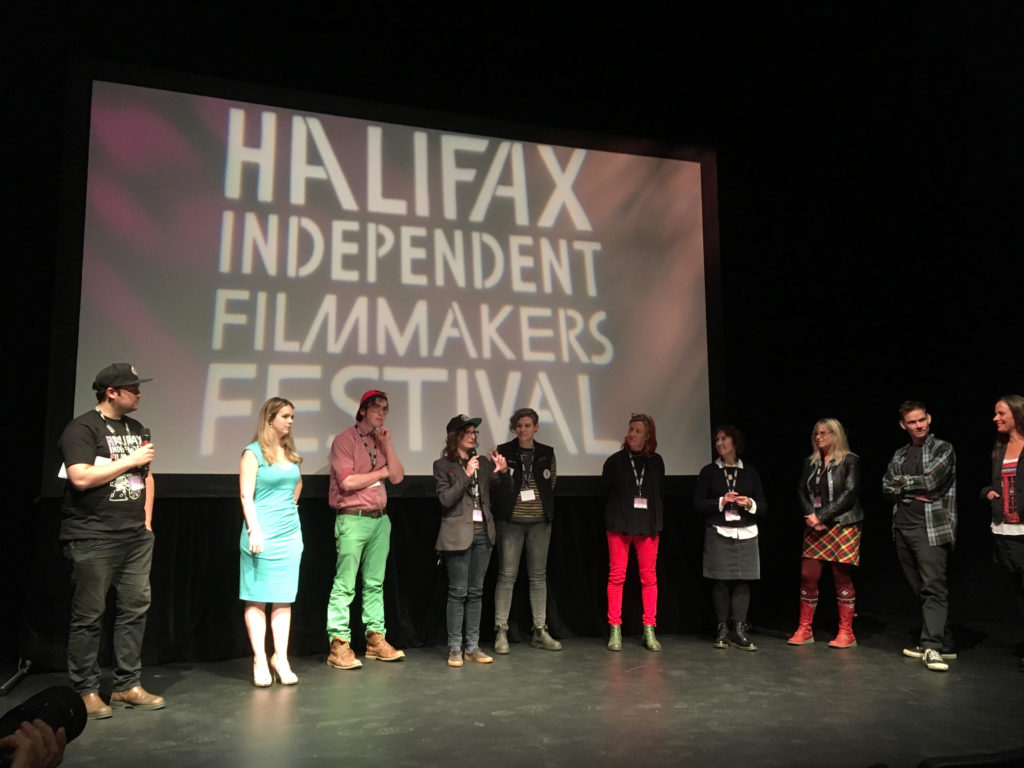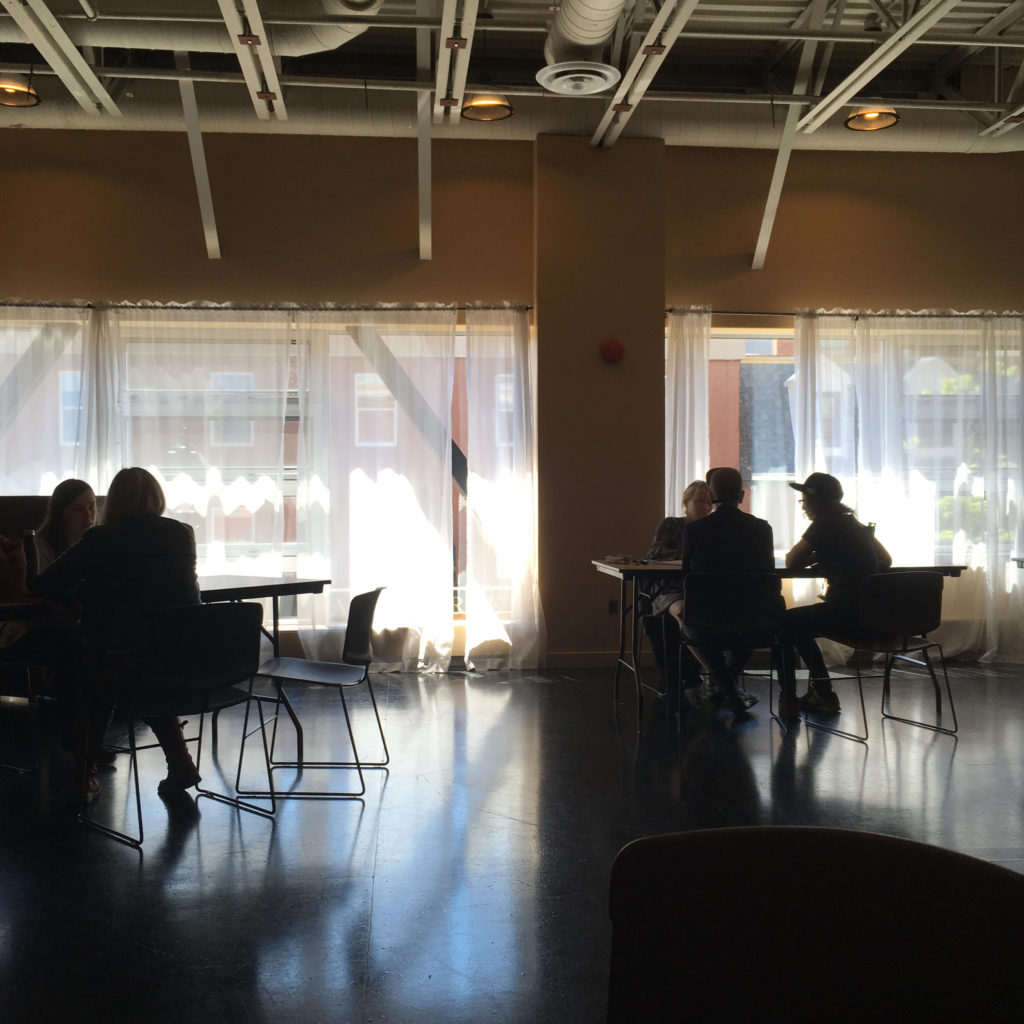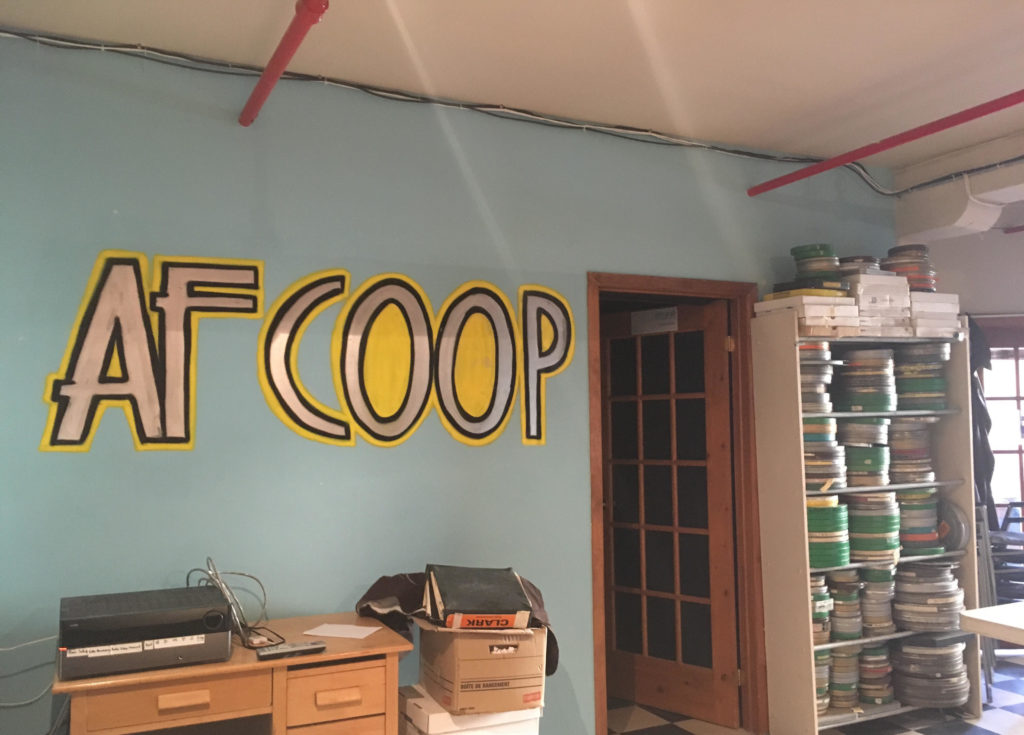Reviews include Irena’s Vow, The Beast, and Before I Change My Mind.
Nova Scotia Rising: The Programmer Initiative and East Coast Talent at HIFF
June 15, 2017
HIFF: The lifeblood of the Nova Scotia scene sets an example that other festivals should follow.
Now in its 11th year, the Halifax Independent Filmmakers Festival continues to take strides toward facilitating relationships between filmmakers in Atlantic Canada, the rest of the country, and beyond. This small, community-run event is presented by the Atlantic Filmmakers Cooperative, a member-operated centre driven by filmmakers for filmmakers that is the lifeblood of the Nova Scotian indie scene. AFC’s work enables HIFF to curate a two-night short film program entitled “Atlantic Auteurs,” showcasing the best work from local directors.

A stylistically diverse range of shorts, the films run the gamut from narrative to documentary to animation to experimental, with a variety of intersections in between. Lengthy Q&As follow the screening, allowing each filmmaker to discuss their practice. The sense of community is extremely strong—apparent in the overlap of names in the credits and special thanks, and in the two nights several of the questions were asked by the other filmmakers. HIFF has a special welcoming vibe that makes any visitors feel like guests in this tight-knit network. (One of the parties was even in one director’s stop motion animation studio.)
The most essential component of HIFF is its Programmer Initiative. Running since 2014 and originally spearheaded by Nelson McDonald (no longer with the festival), the Programmer Initiative invites prominent programmers from across Canada and around the world. This year’s invitees were Jason Anderson of TIFF, Émilie Poirier of Festival du Nouveau Cinéma, Kerri Long of the Edmonton International Film Festival, and Delphine Jeanneret of Internationale Kurzfilmtage. Lacking the advantages provided by living in Canada’s major film cities, the Programmer Initiative is an attempt at bridging the gap between Atlantic talents and the festival world. Aside from bringing the programmers in and having them see the shorts programs, the festival hosts a sort of “speed dating” session, in which all of the attending filmmakers meet one-on-one with each of the programmers, giving them a chance to discuss their work, seek advice, and ask questions about the festival submission process. It’s the type of dialogue often missing in the filmmaker-festival relationship, humanizing the otherwise cold dynamic of blind submissions and formal rejection emails.

The results have been clear. Programmers who have attended in years past have gone on to speak highly of the talent they’ve encountered, and spikes in the inclusion of Atlantic-based films in their programs say even more.Curtis Woloschuk, two-time attendee of the Programmer Initiative who heads Canadian short film programming at the Vancouver International Film Festival, said that submissions from Nova Scotia increased “sixfold” after his first visit, and indeed the region has since been very well represented at VIFF. The other component of the initiative is a screening called “By Invitation,” featuring favourite short films selected by the visiting programmers who answer questions directly from the other filmmakers about their choices. This type of exchange is far too rare—and for regionally isolated filmmakers, especially in a country as vast as Canada, HIFF is setting an example that other festivals and film organizations should follow.
The rest of HIFF’s programming included two retrospective screenings (one of the work of experimental filmmaker Mike Hoolboom and the other of Caroline Monnet), a screening of Toronto-based filmmaker Sofia Bohdanowicz’s debut feature Never Eat Alone preceded by three short films about her paternal grandmother (the same program that originated at VIFF last fall, screened in BAFICI, and the TIFF Bell Lightbox). Bohdanowicz was also on hand to give a masterclass at AFC. The provocative and politically charged Those Who Only Make Revolution Halfway Dig Their Own Graves by Mathieu Denis & Simon Lavoie also screened. This survey of the best in festival-lauded indie talent makes for great programming to begin with, but the intention here is to expose these works for the benefit of the attending Atlantic-based filmmakers to give them a sense of what’s being made by other bold independent voices across the country. To keep things from being an exclusively Canuck affair, Thai filmmaker Anocha Suwichakornpong was also in Halifax to present her film By the Time it Gets Dark about the government-sanctioned 1976 Thammasat University massacre, another work that sits nicely alongside Bohdanowicz and Denis and Lavoie’s films in the distinct ways they explore the potential of what the medium can do.

This year’s HIFF had a particular buzz around it, not just for the films that were screened, but beyond. With the success of Cape Breton-based filmmaker Ashley McKenzie’s Werewolf setting the stage, more eyes than ever are directed to Canada’s East Coast for what might be next. With a handful of features reaching the finish lines of post-production, there may be more than just one Nova Scotian filmmaker on the rise: Cory Bowles is putting the finishing touches on a political satire called Black Cop; Seth Smith has The Crescent, an arthouse horror film; Winston DeGiobbi has Mass for Shut Ins (described by Ashley McKenzie as “underground, low-fi, Harmony Korine-ish, strange provocative stuff”), and Jacquelyn Mills has already premiered In the Waves at Visions du Réel. The East Coast is poised to take another leap forward in Canadian cinema, and HIFF is well-positioned to continue fostering the talent to make it possible.
Guest post and photos by Adam Cook



